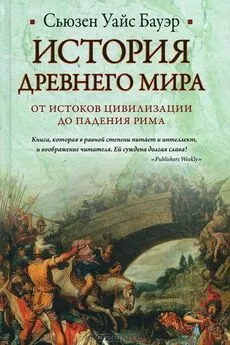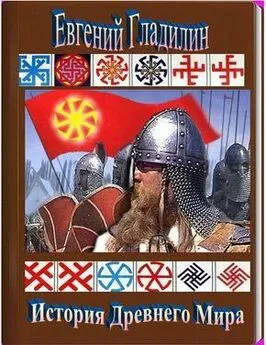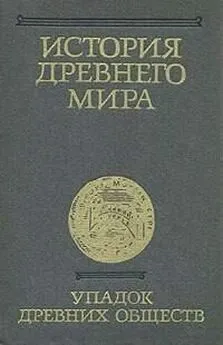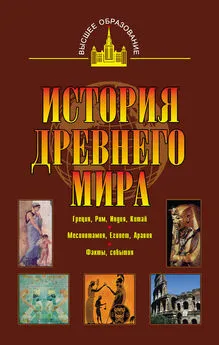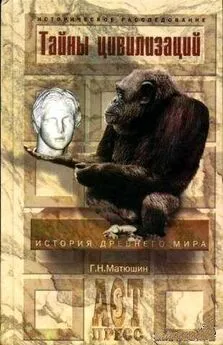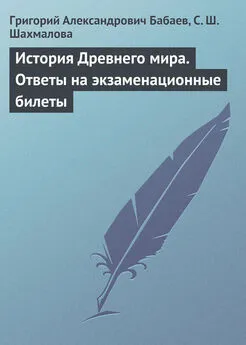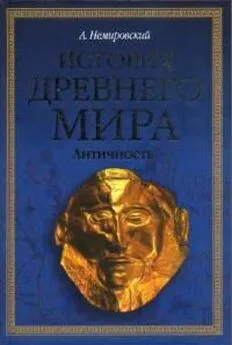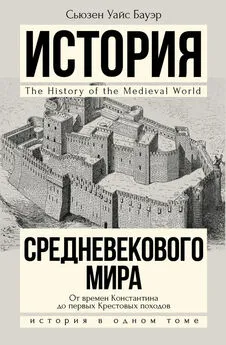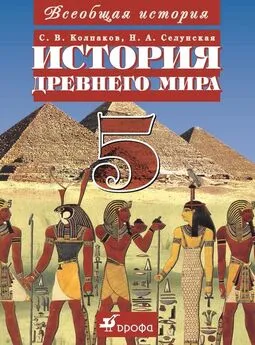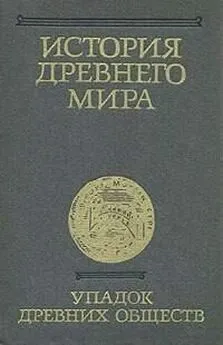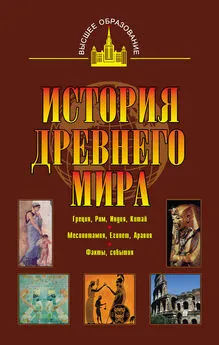Сьюзен Бауэр - История Древнего мира: от истоков цивилизации до падения Рима
- Название:История Древнего мира: от истоков цивилизации до падения Рима
- Автор:
- Жанр:
- Издательство:АСТ, Астрель
- Год:2011
- Город:Москва
- ISBN:978-5-17-057026-3, 978-5-271-37483-8
- Рейтинг:
- Избранное:Добавить в избранное
-
Отзывы:
-
Ваша оценка:
Сьюзен Бауэр - История Древнего мира: от истоков цивилизации до падения Рима краткое содержание
В этой книге Сьюзен Бауэр выдвигает и доказывает интереснейшую теорию взаимодействия и взаимопроникновения культур самых разных западных и восточных цивилизаций.
Не просто сухие факты, но подробный и яркий рассказ о внешней и внутренней политике государств древности, об их литературе, религии и мифологии, повседневной жизни и системе управления.
Результатом становится потрясающая мозаика событий, свидетельств и документов, в которой в равной степени важен каждый элемент.
История Древнего мира: от истоков цивилизации до падения Рима - читать онлайн бесплатно полную версию (весь текст целиком)
Интервал:
Закладка:
‹358›Clayton, p. 157.
‹359›Bryce, p. 94.
‹360›Ibid., p. 22.
‹361›K. A. Kitchen, trans., Ramesside Inscriptions, Historical and Biographical, vol. 4 (1969), 5.3.
‹362›Bryce, p. 95.
‹363›Ibid., p. 109.
‹364›Ibid., p. 26.
‹365›Ibid., p. 234.
‹366›Redfbrd, Egypt, p. 245.
‹367›Переделано из надписи, обозначенной как RS 34, взятой из: Sylvie Lackenbacher, Le rot bdtisseur. Les recks de construction assyriens des origins a Tegftitphalasar III (1982).
‹368›Itamar Singer, «New Evidence on the End of the Hittite Empire», in The Sea Peoples and Their World: A Reassessment, ed. Eliezer D. Oren (2000), p. 22.
‹369›Laessoe, p. 98.
‹370›Leick, Mesopotamia, p. 209.
‹371›Chronicle P, quoted in Saggs, Babylonians, p. 119.
‹372›Quoted in Roaf, p. 148.
‹373›Luckenbill, Ancient Records, vol. 1, p. 49.
‹374›Saggs, Assyria, p. 52.
‹375›Luckenbill, Ancient Records, vol. 1, p. 49.
‹376›Leick, Mesopotamia, p. 251.
‹377›Saggs, Babylonians, p. 120.
‹378›Большой папирус Харриса [309], цит. по A. Malamat in «Cushan Rishathaim and the Decline of the Near East around 1200 BC» Journal of Near Eastern Studies 13:4 (1954), p. 234.
‹379›Clayton, p. 160.
‹380›Несколько сжатый вариант из перевода Льюиса: Lewis, p. 219.
‹381›Jacobus van Dijk, «The Amama Period and the Later New Kingdom», in The Oxford History of Ancient Egypt, ed. Ian Shaw (2000), pp. 304–305.
‹382›Несколько сжатый вариант из перевода Редфорда: Redford, Egypt, p. 251.
‹383›Redford, Egypt, p. 252.
‹384›Lewis, p. 245.
‹385›David O’Connor, «The Sea Peoples and the Egyptian Sources», in The Sea Peoples and Their World: A Reassessment, ed. Eliezer D. Oren (2000), p. 95.
‹386›Ibid., p. 85.
‹387›Lewis, pp. 245–246.
‹388›van Dijk, p. 306.
‹389›Lewis, p. 247.
‹390›Ibid., p. 252.
‹391›Ibid., p. 254.
‹392›Clayton, p. 168.
‹393›See van Dijk, p. 308, а также: Lewis, p. 265.
‹394›Clayton, p. 171.
‹395›Taylour, p. 159.
‹396›Morkot, p. 46.
‹397›Herodotus, 5.76.
‹398›Konon, Narratives, Sec. 26, in The Narratives of Konon: Text Translation and Commentary of the Diegesis by Malcolm Brown (2003).
‹399›Thucydides, 1.12.2–4.
‹400›Taylour, p. 161.
‹401›E. Watson Williams, «The End of an Epoch», Greece & Rome, 2d series, 9:2 (1962), pp. 119–120.
‹402›Philip P. Betancourt, «The Aegean and the Origin of the Sea Peoples», in The Sea Peoples and Their World: A Reassessment, ed. Eliezer D. Oren (2000), p. 300.
‹403›Homer, The Iliad, 1.12–14, translated by Robert Fitzgerald (1974).
‹404›Williams, p. 117.
‹405›Quoted in Williams, p. 112.
‹406›Translated by Н. Otten in the journal Mitteilungen des deutschen Orientgesellschaft 94 (1963), p. 21, and quoted in Redford, Egypt, p. 254.
‹407›Roaf, p. 149.
‹408›A. T. Olmstead, «Tiglath-Pileser I and His Wars», Journal of the American Oriental Society, 37 (1917), p. 170.
‹409›J. N. Postgate, «The Land of Assur and the Yoke of Assur», World Archaeology 23:3 (1992), p. 255.
‹410›Luckenbill, Ancient Records, vol. 1, p. 83.
‹411›Olmstead, «Tiglath-Pileser I and His Wars», p. 186.
‹412›Leick, Mesopotamia, p. 212.
‹413›Olmstead, «Tiglath-Pileser I and His Wars», p. 180.
‹414›W. G. Lambert, «Studies in Marduk», Bulletin of the School of Oriental and African Studies, University of London 47:1 (1984), p. 4.
‹415›Postgate, p. 249.
‹416›J. A. Brinkman, «Foreign Relations of Babylonia from 1600 to 625 BC: The Documentary Evidence», American Journal of Archaeology 76:3 (1972), p. 276.
‹417›Quoted in Leick, Mesopotamia, p. 254.
‹418›J.A.G. Roberts, p. 10.
‹419›Ch’ien, p. 51.
‹420›Mencius, Mencius, translated by D. С. Lau (1970), p. 172.
‹421›Ibid., p. 26.
‹422›J.A.G. Roberts, p. 13.
‹423›Cotterell, China, p. 28.
‹424›Tsui Chi, A Short History of Chinese Civilisation (1942), p. 47.
‹425›Ch’ien, p. 64.
‹426›Cotterell, China, p. 42.
‹427›Claudio Cioffi-Revilla and David Lai, «War and Politics in Ancient China, 2700 BC to 722 BC: Measurement and Comparative Analysis»./ottraa/ of Conflict Resolution 39:3 (1995), p. 473.
‹428›Constance A. Cook, «Wealth and the Western Zhou», Bulletin of the School of Oriental and African Studies, University of London 60:2 (1997), pp. 254–275.
‹429›Ch’ien, p. 63.
‹430›Ibid., p. 62.
‹431›Li Xueqin, Eastern Zhou and Qin Civilizations (1985), p. 16.
‹432›Sarah Allan, «Drought, Human Sacrifice and the Mandate of Heaven in a Lost Text from the ‘Shang Shu’», Bulletin of the School of Oriental and African Studies, University of London 47:3 (1984), p. 533.
‹433›Edward L. Shaughnessy, «Western Zhou History», in The Cambridge History of Ancient China: From the Origins of Civilization to 221BC, ed. Michael Loewe and Edward L. Shaughnessy (1999), p. 311; а также: Xueqin, p. 16.
‹434›Об этом рассказано в «Шань-шу»; см. Shaughnessy, «Western Zhou History», p. 314.
‹435›Цит. no: Shaughnessy, «Western Zhou History», p. 322.
‹436›Ibid.
‹437›Ch’ien, p. 66.
‹438›Слегка перефразировано из: Ch’ien, p. 68.
‹439›Ibid.
‹440›Kulke and Rothermund, p. 36.
‹441›Keay, p. 40.
‹442›Wolpert, p. 37.
‹443›Keay, pp. 3–4.
‹444›Chakravarthi V. Narasimhan, trans., The Mahabharata: An English Version Based on Selected Verses (1998), pp. 14–15.
‹445›Wolpert, p. 30.
‹446›Narasimhan, p. 34.
‹447›Kulke and Rothermund, p. 44.
‹448›Keay, p. 43.
‹449›Narasimhan, p. 44.
‹450›Ibid., p. 47.
‹451›Wolpert, p. 30.
‹452›Keay, p. 41.
‹453›Wolpert, p. 36.
‹454›Josh. 1:4, New International Version (hereafter NIV).
‹455›Pellegrino, p. 256.
‹456›Josh. 13:2–4, NIV.
‹457›Judg. 15:11, NIV
‹458›Judg. 16:30, NIV.
‹459›1 Sam. 8:11–18, NIV.
‹460›1 Sam. 13:19–21, NIV.
‹461›1 Sam. 17:51–52, NIV.
‹462›Dimitri Baramki, Phoenicia and the Phoenicians (1961), p. 25.
‹463›1 Kings 4:22–26, NIV.
‹464›E. W. Heaton, Solomon’s New Men: The Emergence of Ancient Israel as a National State (1974), p. 34.
‹465›1 Kings 10:1–2,13, NIV.
‹466›Robert G. Hoyland, Arabia and the Arabs: From the Bronze Age to the Coming of Islam (2001), p. 13.
‹467›Ibid., p. 38.
‹468›1 Kings 9:11, NIV.
‹469›Homer, The Iliad, Book 9, 460–469, translated by Samuel Butler (1898).
‹470›Clayton, p. 184.
‹471›1 Kings 14:25–27, NIV.
‹472›Shaughnessy, «Western Zhou History», p. 324.
‹473›Constance A. Cook, «Wealth and the Western Zhou», p. 283.
‹474›Shaughnessy, «Western Zhou History», p. 326.
‹475›Ch’ien, p. 70.
‹476›Fairbank and Goldman, p. 18.
‹477›Shaugnessy, «Western Zhou History», p. 329.
‹478›Ch’ien, p. 71.
‹479›The Greater Odes 3.7, Ezra Pound, in trans., The Confucian Odes: The Classic Anthology Defined by Confucius (1954), p. 180
‹480›Constance A. Cook, «Wealth and the Western Zhou», p. 288.
‹481›Ch’ien, p. 71.
‹482›Ibid., p. 72.
‹483›Edward L. Shaughnessy, «Historical Perspectives on the Introduction of the Chariot into China», Harvard Journal of Asiatic Studies 48:1 (1988), p. 223.
‹484›Edward Kaplan, An Introduction to East Asian Civilizations: The Political History of China, Japan, Korea and Mongolia from an Economic and Social History Perspective (1997), sec. 12.3.
‹485›Shaughnessy, «Western Zhou History», p. 347.
‹486›Ch’ien, p. 73.
‹487›Ibid., p. 74.
‹488›Chi, p. 48.
‹489›Ibid., pp. 48–49.
‹490›Quoted in Cotterell, China, p. 39.
‹491›Chi, p. 49.
‹492›2 Sam. 8:5–6, NIV.
‹493›Saggs, Assyria, p. 70.
‹494›Joan Oates, Babylon (1979), p. 106.
‹495›Saggs, Assyria, p. 72.
‹496›Luckenbill, Ancient Records, vol. 1, pp. 158, 171.
‹497›Laessoe, p. 102.
‹498›Ibid., p. 104.
‹499›Luckenbill, Ancient Records, vol. l,pp. 164–166.
‹500›1 Kings 16:21–25, NIV.
‹501›John Rogerson, Chronicle of the Old Testament Kings (1999), p. 102.
‹502›A.T. Olmstead, History of Assyria (1923), p. 87–88.
‹503›Luckenbill, Ancient Records, vol. 1, p. 147.
‹504›Ibid., p. 201.
‹505›Charles F. Pfeiffer, Old Testament History (1973), p. 314.
‹506›Olmstead, History of Assyria, p. 136.
‹507›1 Kings 22:7 ff., NIV.
‹508›2 Kings 10:32, NIV.
‹509›Michael C. Astour, «841 B.C.: The First Assyrian Invasion of Israel», Journal of the American Oriental Society 91:3 (1971), p. 386.
‹510›Pfeiffer, p. 318.
‹511›Luckenbill, Ancient Records, vol. 1, pp. 202–203, 264.
‹512›Oates, pp. 109–110.
‹513›Alan R. Millard, «Chaldeans», entry in Dictionary of the Ancient Near East, ed. Piotr Bienkowski and Alan Millard (2000), p. 70.
‹514›Brinkman, «Foreign Relations of Babylonia», p. 279.
‹515›Olmstead, History of Assyria, p. 144.
‹516›Saggs, Assyria, p. 77.
‹517›Luckenbill, Ancient Records, vol. 1, p. 254.
‹518›Olmstead, History of Assyria, p. 156.
‹519›R. W. Rogers, A History of Babylonia and Assyria, vol. 2 (1971), p. 95.
‹520›Luckenbill, Ancient Records, vol. 1, p. 259.
‹521›J. A. Brinkman, A Political History of Post-Kassite Babylon, 1158–722 BC (1968), pp. 169–170.
‹522›Brinkman, «Foreign Relations of Babylonia», p. 279.
‹523›Saggs, Assyria, p. 79.
‹524›Terry Buckley, Aspects of Greek History, 750–323 BC: A Source-Based Approach (1996), p. 35.
‹525›Donald Larimer, «The Iliad: An Unpredictable Classic», in Robert Fowler, ed., The Cambridge Companion to Homer (2004), p. 18.
‹526›Ken Dowden, «The Epic Tradition in Greece», in Fowler, p. 190.
‹527›Robin Osborne, «Homer’s Society», in Fowler, p. 206.
‹528›Ibid., p. 218.
‹529›Robert Fowler, «Introduction», in Fowler, p. 5.
‹530›Sarah B. Pomeroy et al., Ancient Greece: A Political, Social, and Cultural History (1999), p. 79.
‹531›Homer, The Iliad, Book 2, translated by Alexander Pope (1713).
‹532›T. J. Cornell, The Beginnings of Rome: Italy and Rome from the Bronze Age to the Punic Wars (c. 1000–264 BC) (1995), pp. 31–33.
‹533›David Ridgway, Italy Before the Romans: The Iron Age (1979), pp. 24–25.
‹534›Cornell, pp. 35–36.
‹535›H. H. Scullard, A History of the Roman World, 753 to 146 BC (2003), p. 39.
‹536›Buckley, p. 36.
‹537›Judith Swaddling, The Ancient Olympic Games (1999), pp. 10–11.
‹538›Livy, 1.4, from The Early History of Rome, Books I–V of The History of Rome from Its Foundation, translated by Aubrey de Selincourt (1971), pp. 37–38.
‹539›Plutarch, Romulus, in Plutarch's lives, vol. 1: The Dryden Translation, p. 27.
Читать дальшеИнтервал:
Закладка:
